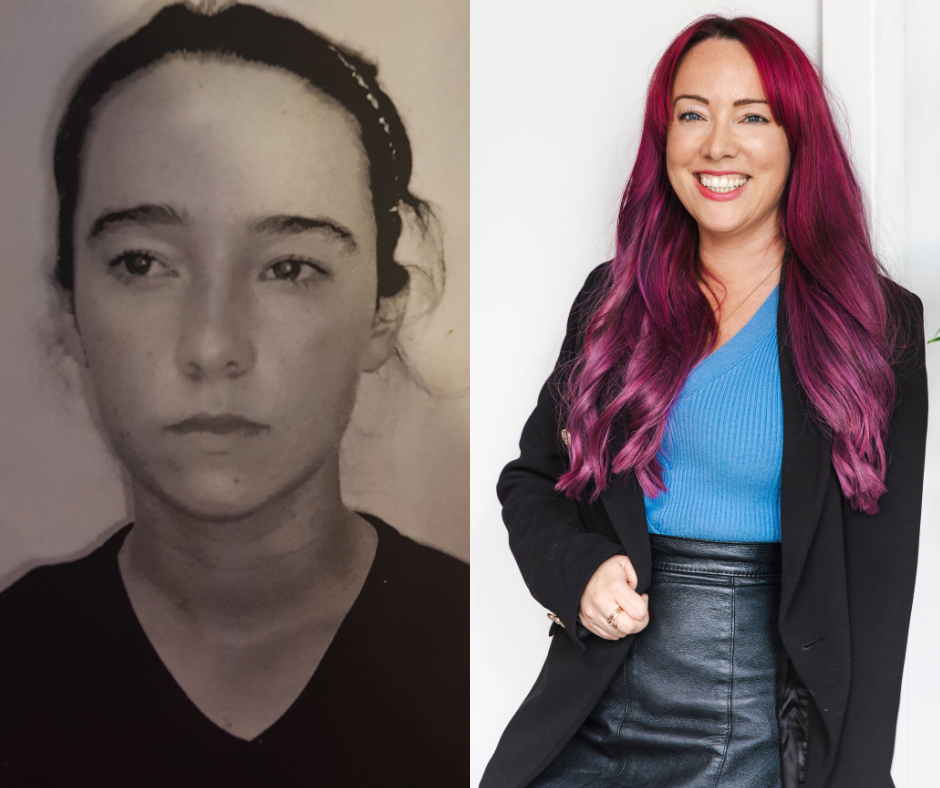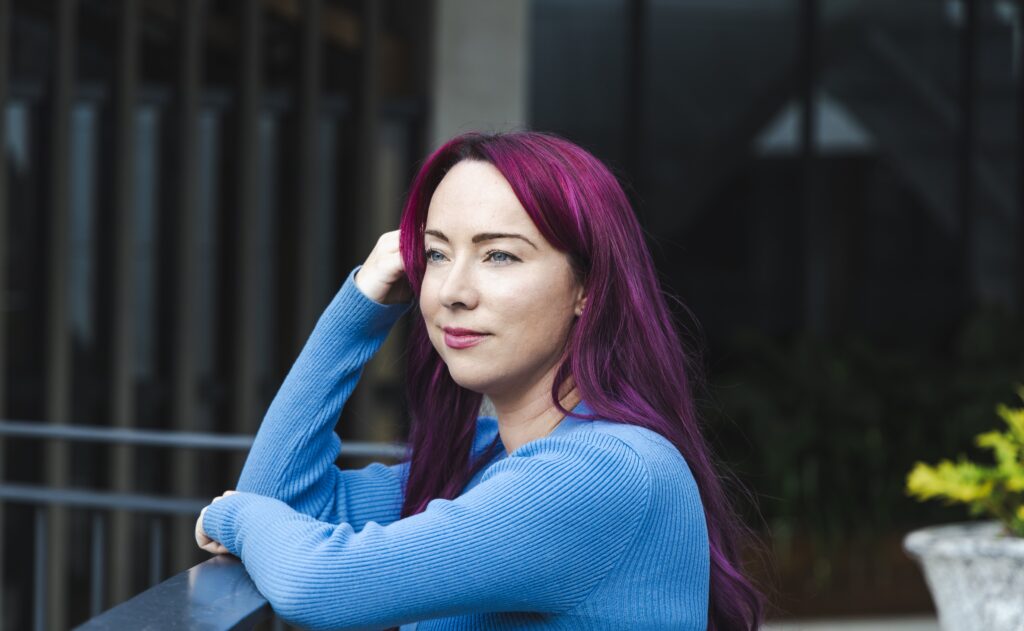Jas Rawlinson used to listen out for her dad’s car pulling into the driveway each evening. As a child, the way his tyres would sound would help her figure out what kind of man was coming home – whether it was going to be a good day, or a bad day.
“Every day, I was wondering what kind of dad was going to come home, what eggshells I needed to tip-toe across,” Rawlinson told Women’s Agenda.
Rawlinson is a domestic and family violence victim-survivor. She’s an award-winning speaker and author, using her story to help young people and parents recognise abuse at home.
She’s also a mother of a seven-year-old son, and Rawlinson spends every day making sure home is a safe place for him.
“I can’t protect him from absolutely everything in the world, as much as I would try,” Rawlinson said.
“But I know that I can control our home environment, and I can make sure that is a place where he feels safe.”
National Child Protection Week
This week is National Child Protection Week, an advocacy week dedicated to engaging and educating Australians on the urgent need to protect children from abuse.
Somewhere between 45,000 and 50,000 children in Australia experience abuse and neglect every year, including emotional abuse.
CEO of advocacy organisation Act for Kids, Dr Katrina Lines defines emotional abuse as “a pattern of behaviours that damage a child’s sense of self-worth and impact their emotional development”. It can include behaviours such as yelling, swearing, insulting, criticising, threatening, and/or shaming a child.
“Emotional abuse can be just as damaging as physical abuse, yet it often goes unnoticed or unreported,” Dr Lines said.
Dr Lines’ organisation Act for Kids released recent research into emotional abuse. The majority of respondents (87 per cent) agreed that emotional abuse is a serious problem in Australia, yet nine in ten (90 per cent) underestimate the prevalence of childhood maltreatment, the research found.
Among the 45,400 children in Australia confirmed to have experienced abuse during 2022-23, emotional abuse was the most common type of maltreatment (57 per cent).
Concerningly, only half (50 per cent) of Australians said they would alert authorities of suspected child abuse.
There is also a gap in Australians’ understanding of emotional abuse: one in five (21 per cent) do not recognise that withholding love and affection is a form of emotional abuse.
Dr Lines is concerned about these findings, but determined to continue advocacy to turn the numbers around.
“These findings are important and highlight the prevalence of this issue in society, but the data also identifies crucial knowledge gaps in our understanding,” Dr Lines said.
“By raising awareness and providing education on this critical issue, we can help mitigate the effects such as anxiety, depression, and even physical health problems later in life.”
Sticks and stones
Jas Rawlinson knows all too well the damage childhood emotional abuse can have on a person, all the way into adulthood.
“Children going around carrying these invisible scars and bruises that other people just can’t see. A lot of people either aren’t aware or they don’t think it’s a big deal,” Rawlinson said.
“Those scars don’t go away. For some of us, they’ve lightened over time, but we all still carry scars to some degree, and for some of us, the damage is horrific. The lifelong damage of emotional abuse is devastating.”

Rawlinson grew up at a time that followed the mantra: “Sticks and stones may break my bones, but words will never hurt me.” She now knows how problematic this advice really is.
“I used to find it really hard to work out why I couldn’t seem to take that advice and make it work for me as a kid, both in my household and also dealing with bullies in school,” Rawlinson said.
“I thought: why can’t I just turn off my emotions and not be so sensitive?”
As a mother, she does her best to make sure her childhood is not repeated with her seven-year-old son. Making home an emotionally safe space to be in is a priority in her parenting.
“I think for children, it’s really important that they can come to you with any problem that they’re dealing with, but especially that they feel that their feelings are valid,” Rawlinon said. “We try to be really present with him when he is upset about something.
“I think sometimes people forget kids are so vulnerable. They’re so innocent. And things that might seem kind of dumb to us might be really, really significant for a young child.”
Rawlinson is not a parenting expert, she said, but as a victim-survivor, she has advice for parents who aren’t sure what constitutes emotional abuse at home.
“If you do recognise that you have a tendency to humiliate your child, to make them feel bad about themselves, you do really need to go and see your GP and get a mental health care plan,” Rawlinson said. Because if my dad had done that, my life could have been very different.
“It’s really hard to be a parent. It is one of the hardest responsibilities that we’ll ever have.
“If you are emotionally abusing your child, it’s not too late to turn things around.”
Featured image (supplied) – Credit: Louise Wright
If you or someone you know is experiencing, or at risk of experiencing, domestic, family or sexual violence, call 1800RESPECT on 1800 737 732, text 0458 737 732 or visit 1800RESPECT.org.au for online chat and video call services.
If you are concerned about your behaviour or use of violence, you can contact the Men’s Referral Service on 1300 766 491 or visit http://www.ntv.org.au.
Feeling worried or no good? No shame, no judgement, safe place to yarn. Speak to a 13YARN Crisis Supporter, call 13 92 76. This service is available 24 hours a day, 7 days a week.


